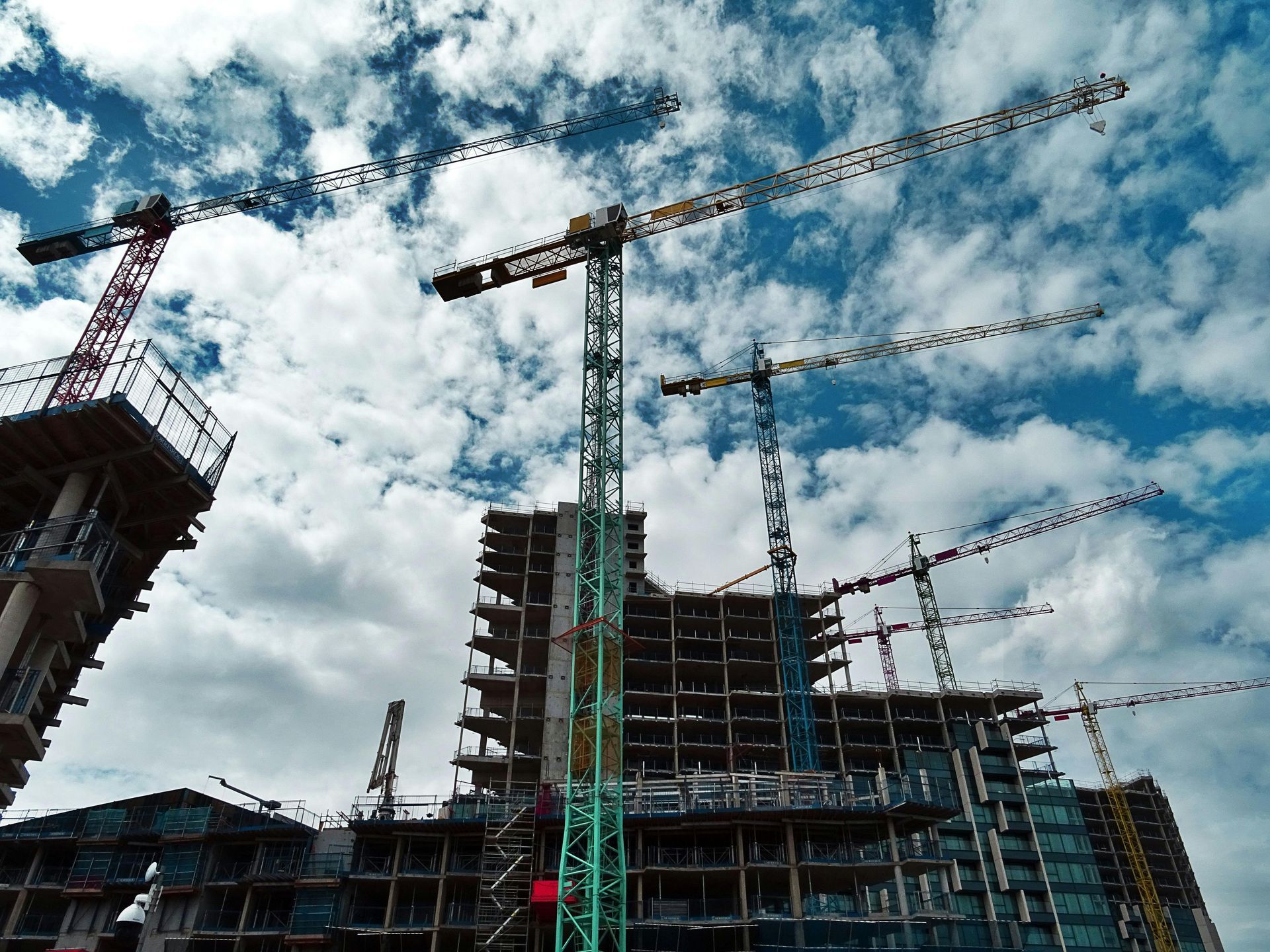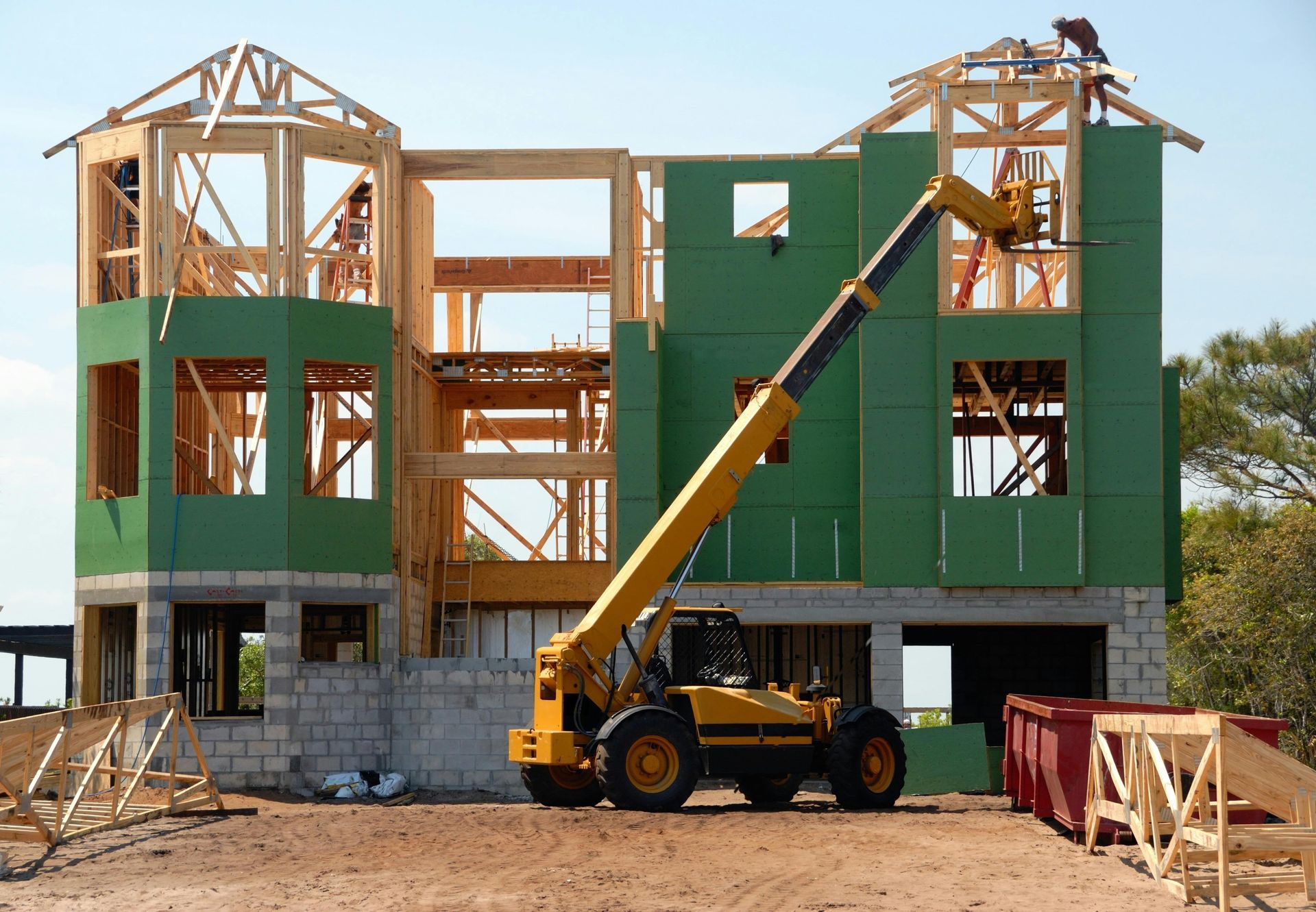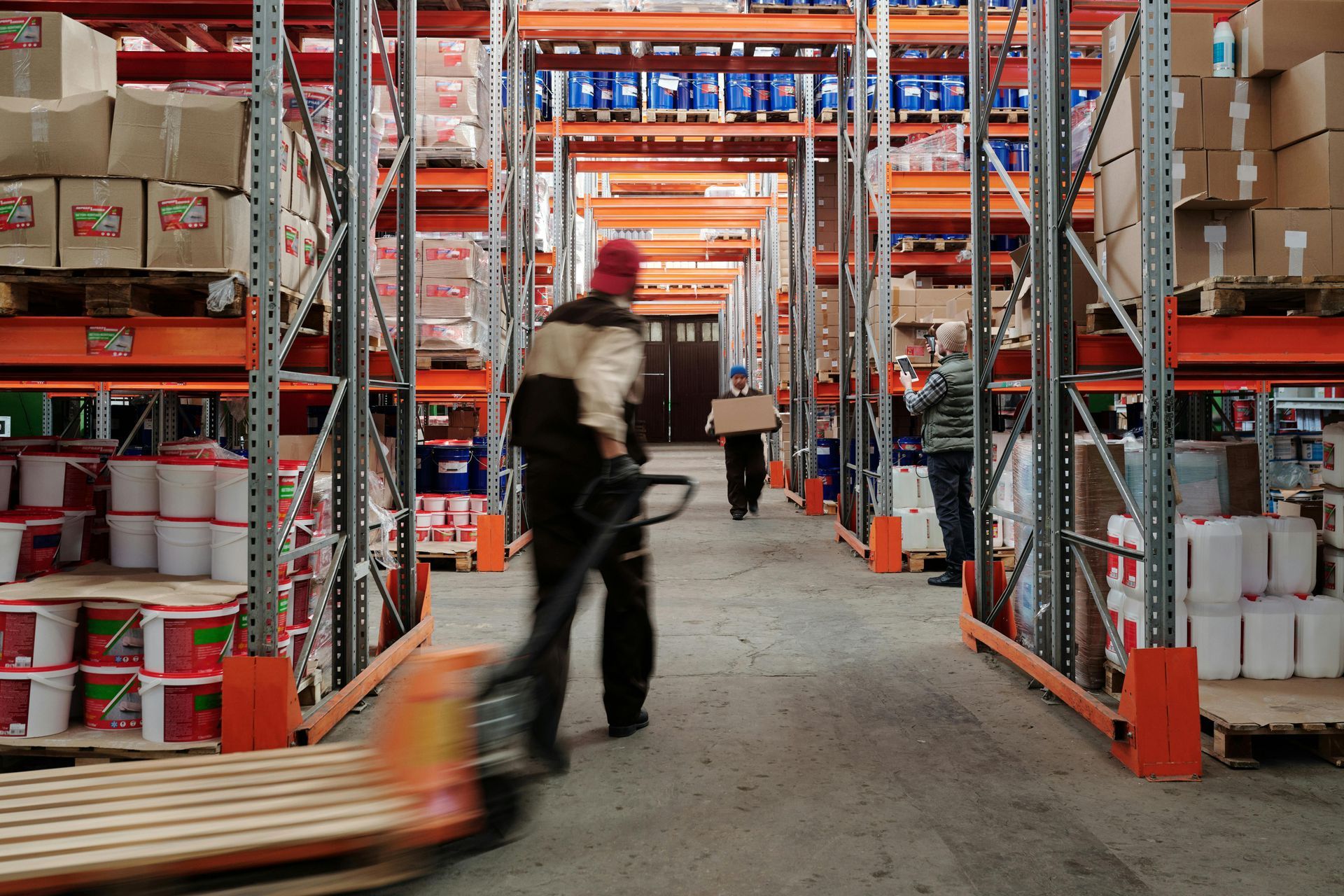Avoiding Costly Delays: How Reliable Logistics Can Keep Your Projects on Schedule
In the construction industry, staying on schedule is critical to a project’s success. Delays can disrupt the entire workflow, affecting deadlines, increasing costs, and damaging client relationships. When you factor in the complexities of multi-unit construction, where several phases and teams depend on precise timing, the role of logistics becomes even more crucial. Ensuring materials and equipment arrive on time is key to avoiding delays, reducing inefficiencies, and keeping your project on track.
The importance of reliable logistics cannot be overstated. Late deliveries or missed shipments can cause a ripple effect throughout the project, resulting in extended timelines, idle workers, additional costs, and even penalties. In this article, we’ll explore how reliable logistics help you avoid costly delays, improve operational efficiency, and maintain strong relationships with clients, ultimately setting the foundation for successful project delivery.
1. The Financial Impact of Delays
Delays in construction often come with a hefty price tag. The financial repercussions can be substantial, turning a profitable project into a budgetary disaster. When materials and equipment don’t arrive on time, the work halts, and costs continue to accumulate.
Construction teams work with tight schedules and lean margins, and every delay compounds the financial strain. Whether it’s idle workers on the clock, expensive equipment sitting unused, or additional storage fees for materials that arrive too early or too late, the financial hit from delays can be significant.
Key Ways Delays Impact Your Bottom Line:
Idle Labor Costs: One of the most direct impacts of delays is idle labor. When deliveries are late, workers are left without the materials they need to continue their tasks. The project comes to a standstill, but payroll continues to drain your budget.
Increased Equipment Costs: Delayed materials can extend the rental period for expensive equipment, further inflating costs. Every extra day that equipment remains unused, yet on-site, adds unnecessary expenses to your project budget.
Missed Deadlines and Penalties: Failing to meet deadlines can lead to penalties or legal consequences, especially if there are contractual obligations tied to timely completion. These penalties can severely erode profit margins.
Lost Opportunities: Delays in one project can cause a chain reaction, pushing back the start of new projects and limiting your capacity to take on new contracts. This lost revenue opportunity can significantly impact your business's long-term financial health.
In understanding how delays affect the financial aspects of a project, construction companies can better appreciate the role that reliable logistics play in preventing disruptions and keeping projects on schedule.
2. The Role of Reliable Logistics in Construction Projects
At the heart of every construction project is the seamless movement of materials and equipment. Logistics are the lifeblood of construction, ensuring that the necessary resources are delivered to the site at the right time, in the right quantities, and in the right condition. This is where a reliable logistics partner becomes invaluable.
Construction logistics involve more than just transportation; they encompass scheduling, inventory management, communication, and coordination across multiple stakeholders. Delays in logistics can lead to delays in the project, causing disruptions at every level.
Key Elements of Reliable Logistics:
On-Time Deliveries: Timely delivery of materials and equipment is the cornerstone of reliable logistics. A dependable logistics partner ensures that deliveries are precisely coordinated with your project’s schedule, minimizing downtime and keeping your team productive.
Coordination Across Multiple Sites: Multi-site projects require flawless coordination to ensure that each location receives the resources it needs without creating bottlenecks or shortages. A reliable logistics provider can handle complex deliveries across multiple job sites, keeping all aspects of your project moving forward.
Efficient Scheduling and Planning: Reliable logistics providers work closely with project managers to anticipate material needs and coordinate deliveries according to the construction timeline. By planning ahead, they prevent last-minute scrambling and ensure materials arrive when needed, not too early or too late.
Reliable logistics ensure a smooth flow of materials, reducing downtime and keeping the project on schedule. In construction, every delay can lead to further complications, so choosing a logistics provider who delivers on time is crucial.
3. Proactive Planning and Communication
The construction process is dynamic, with schedules frequently shifting due to unforeseen circumstances like weather, labor shortages, or site conditions. These changes can complicate the logistics, but proactive planning and communication between the construction team and logistics provider can mitigate many potential problems.
When your logistics partner is involved in the planning stages, they can better align with your project’s specific needs and adjust to changing timelines. This proactive approach helps prevent bottlenecks and ensures materials are delivered on time, even when unexpected delays occur.
Benefits of Proactive Logistics Planning:
Anticipating Material Needs: By working with your project managers from the outset, a reliable logistics partner can anticipate when materials will be needed at each stage of the project. This level of foresight ensures that deliveries arrive exactly when required, avoiding storage issues or delays caused by material shortages.
Clear Communication Channels: Open and frequent communication between your team and your logistics provider helps ensure that any changes in the project timeline are promptly addressed. This allows both sides to make adjustments as needed, ensuring the delivery schedule aligns with the construction plan.
Real-Time Tracking and Updates: Many logistics providers offer real-time tracking of shipments, giving your team visibility into the status of their deliveries. This transparency allows project managers to plan around the delivery schedule and make real-time adjustments to the project.
Proactive planning and communication with your logistics provider are key to maintaining a fluid project timeline and preventing unnecessary delays.
4. Reducing Downtime with Just-in-Time Deliveries
An efficient way to keep projects on schedule is through just-in-time (JIT) deliveries. JIT is a supply chain management strategy that ensures materials arrive at the job site exactly when needed, rather than being stored on-site for extended periods. This minimizes the need for on-site storage, reduces clutter, and prevents damage or loss of materials.
In JIT logistics, materials are delivered precisely when required for each phase of the project, ensuring that workers have what they need without causing congestion or unnecessary handling of excess materials. This method can dramatically improve productivity and keep your project moving forward efficiently.
How Just-in-Time Deliveries Keep Projects on Track:
Minimizing Storage Costs: By receiving materials only when they are needed, JIT eliminates the need for extensive on-site storage, saving valuable space and reducing costs associated with storing large quantities of materials.
Reducing Downtime: Timely deliveries mean that workers aren’t left waiting for materials, minimizing downtime and keeping the project on schedule.
Preventing Material Damage or Loss: When materials sit on-site for too long, they are at higher risk of being damaged, lost, or stolen. JIT deliveries reduce this risk by ensuring that materials arrive just in time to be used.
While JIT logistics require precise planning and coordination, the benefits to project efficiency, cost savings, and overall productivity make it a highly effective strategy for avoiding costly delays.
5. Flexibility and Adaptability in Logistics
Construction projects are rarely static. They are dynamic and ever-changing, requiring constant adaptation to new circumstances. Whether it’s due to weather, last-minute design changes, or unexpected challenges at the site, flexibility in logistics is key to maintaining control over the project timeline.
A reliable logistics provider understands the fluid nature of construction projects and offers flexible, adaptable solutions to accommodate changing needs. This might involve shifting delivery schedules, expediting urgent materials, or reallocating resources to meet new deadlines.
Why Flexibility in Logistics is Essential:
Quick Adjustments to Delivery Schedules: Reliable logistics providers can quickly adjust delivery schedules when needed, ensuring that materials arrive when the project is ready for them, not too early or too late.
Handling Urgent Requests: In some cases, urgent deliveries are required to keep the project moving. A flexible logistics provider can expedite materials, ensuring they arrive on time and prevent further delays.
Contingency Planning: Even with the best planning, unforeseen events can happen. A reliable logistics provider has contingency plans in place to manage unexpected delays, ensuring that materials still arrive as close to schedule as possible.
This level of flexibility ensures that your logistics partner can adapt to your project’s changing needs, reducing the risk of delays and keeping the project on track.
6. Leveraging Technology for Enhanced Efficiency
The use of technology in logistics has transformed the way construction projects are managed. Reliable logistics providers leverage cutting-edge technology to streamline the delivery process, improve communication, and provide real-time visibility into the supply chain. These innovations make it easier to plan, track, and manage logistics, ultimately improving efficiency and reducing the risk of delays.
Technological Tools That Improve Logistics Efficiency:
Real-Time Tracking Systems: GPS-enabled tracking systems provide full visibility into the location and status of your materials, allowing project managers to make informed decisions and adjust their schedules accordingly.
Automated Scheduling Software: Many logistics providers use advanced scheduling software that optimizes delivery routes and minimizes the risk of delays caused by traffic or logistical challenges.
Data Analytics and Reporting: By analyzing past performance data, logistics providers can identify trends and bottlenecks, allowing them to improve the efficiency of future deliveries.
Technology empowers construction companies and logistics providers to anticipate challenges, solve problems quickly, and maintain a smooth flow of materials.
7. Maintaining Client Satisfaction and Trust
Meeting project deadlines is essential for maintaining client satisfaction and trust. Clients expect their construction projects to be completed on time and within budget, and delays can erode that trust. Reliable logistics play a critical role in ensuring that your projects meet client expectations and deadlines, helping you maintain strong relationships with your clients.
The Role of Reliable Logistics in Client Trust:
Meeting Deadlines: By ensuring materials and equipment arrive on time, reliable logistics providers help you meet your project deadlines, which in turn keeps clients satisfied.
Building Trust: Clients want to work with contractors who are dependable and deliver on their promises. A reliable logistics provider helps you consistently meet your clients’ expectations, strengthening your reputation and fostering long-term business relationships.
Avoiding Penalties: Delays can lead to penalties or legal disputes with clients. Reliable logistics help contractors avoid these penalties by keeping projects on schedule.
Reliable logistics providers help you maintain client trust by ensuring that every project is completed on time and to the highest standards.
Conclusion
In the construction industry, avoiding costly delays is key to maintaining profitability and client satisfaction. Reliable logistics providers play a crucial role in preventing delays by ensuring materials, equipment, and resources are delivered on time. From proactive planning and just-in-time deliveries to flexible solutions and advanced technology, partnering with a logistics provider that prioritizes reliability helps keep your projects on schedule and within budget.
By choosing the right logistics partner, construction companies can avoid unnecessary delays, reduce downtime, and ensure the successful completion of their projects, all while maintaining strong relationships with clients.










All Rights Reserved | ASK Logistix